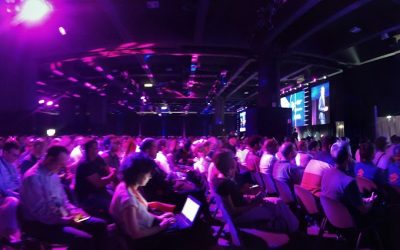It might seem like a cliché, but it’s true that change is the great constant of our personal and working lives.
When Gaia, my colleague from the Marketing Team, asked me to write an article about “People Team”, I had to think about it for a moment, because my job is based on listening rather than writing. The first question which popped into my mind was: how can I describe an abstract role based on listening and observation? And how am I supposed to explain to the company itself, which is mainly composed of hackers and developers, that observation and listening might be the keys that facilitate change?
Thus begins my search for simple words to tell what a People Team does, with the most delicate “material” ever existed: People. Here begins my tale about how and why the People Team does what it does without generating profit directly. What we do as a team puts the employees collaborating with us in a condition which improves their efficiency, with time passing.
When I work for software development companies I can sense a specific thought or feeling hovering in the air: you don’t code? Then you don’t generate profit.
That’s not true and I’ll try to explain why.
WHAT’S THE PEOPLE TEAM? IT’S A TEAM DEVOTED TO THE PEOPLE.
As a matter of fact, it’s the team of Interlogica and it’s composed of two people working with other People side by side.
A few months ago, when our collaboration first began, I found myself entangled in this already established environment where professional relationships among Hackers, Developers, Web Designers, the Marketing and Management team had already been formed. However, much to my surprise all of these people didn’t engage with each other in a business by-the-book way. Hats off to this rare and pleasant thing.
I immediately convinced myself that this new approach is what differentiates this company from all others. This is what makes it dissimilar from all other business models, from all corporations of the “Great Northeast” (an expression used to define the working habits of the north-east of Italy).
I’m sure that you’re all familiar with the expression “I’m the boss”, right? Well, that expression couldn’t be more distant from Interlogica’s reality… Welcome home, People Team!
HUMAN RESOURCES AND THE OLD BUSINESS SPIRIT
Could we say that the People Team stands for the Human Resources? Almost but not quite.
Interlogica has clearly stated its view about this issue: people are People, they’re not resources. A PC is considered a resource, like the office, the desk where one works or the company car.
However, People have something that makes them different from all of this: passion, intelligence, ambition and preferences.
People think, feel, they’re scared, they get angry, they rejoice, they fight with each other, they don’t talk to each other anymore, they reconcile.
Basically, they can feel emotions. Each and every one of us doesn’t just simply go to work alone every morning: we carry all of our personal relationships within ourselves; who has to deal with people must always bear this in mind. What’s even more important is that all of this, whether we like it or not, changes as time goes on.
Here it is, Change.
That’s why every company must identify the starting point, the arriving point, and how it will get there, to that change. Everything starts from the top and falls down like a waterfall to the rest of the company. This means finding one’s own values and trying to share them with the others.
What’s the inherent risk? All forms of resistance, like “we’ve always done it like this” or “yeah, but…”. There’s also the possibility that the adjustment process might not be fully understood by everyone or, even worse, that it might be obstructed.
This is where the work of the People Team finds its true meaning: in the way in which the company faces change and in the way its People promote that change. Changing means trusting oneself and one’s own team, sharing the company’s values and objectives, but it also means making adjustments when they’re needed.
Without these elements, change is just a cover-up.



